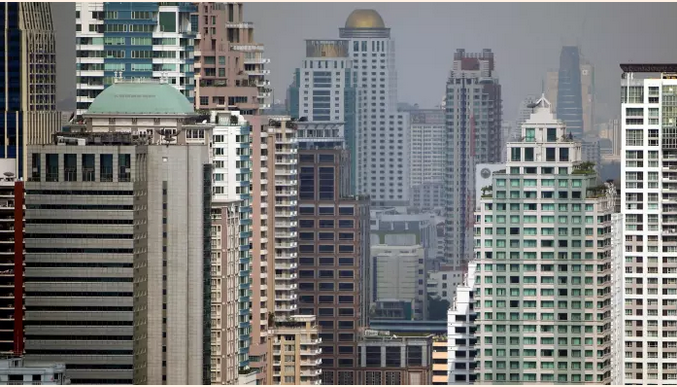Wealthy Asian nationals have snapped up Thai apartments in soaring numbers in a sign of how foreign money is lifting sluggish property markets in the region, says one the country’s developers.
Buyers from Hong Kong, mainland China and other territories have flocked to the Southeast Asian kingdom and will probably continue to buoy the sector at a time of little domestic demand growth, said Srettha Thavisin, president of Bangkok-based Sansiri.
His comments highlight the importance of cross-border property sales in Asia and the potential risks to the sector as China tightens capital controls. Sansiri is hoping to increase its residential sales to foreign buyers by as much as 75 per cent this year, while also opening three new offices in China and one in Hong Kong to add to its expansion to Singapore last year.
“Selling to foreigners is a big business,” said Mr Srettha, explaining why the company was quadrupling its office network in mainland China and opening for the first time in Hong Kong. “If we don’t take care of them, then word of mouth is going to be a big destroyer for us.”
Mr Srettha said Sansiri was hopeful sales to foreign buyers would rise from Bt5.7bn ($170m) last year to Bt10bn this year, if new developments in Bangkok’s popular Sukhumvit district and elsewhere did as well as expected. About 37 per cent of the foreign demand last year came from Hong Kong and 31 per cent from mainland China, with Singapore, Taiwan and Japan also prominent.
Sales to Thai buyers are not expected to rise much higher than last year’s Bt28bn, reflecting moderate growth projected at about 3.5 per cent in the once fast-expanding economy. The company could sell even more to overseas investors were there not limits on the percentages of apartment freeholds that can be held by foreigners in any Thai condominium, Mr Srettha added.
Chinese buyers are particularly tempted by apartments at about Bt5m ($150,000) that hit a “sweet spot” of moderate price, good rental yield and location in an attractive country, Mr Srettha said. “Affordability is key,” he said. “People from Hong Kong and China see this as small change.”
Foreign buyers — particularly from Hong Kong and mainland China — have provided a welcome measure of relief to Southeast Asian property markets facing stuttering domestic demand. Research from Knight Frank, the international property consultancy, has noted how residential markets in Singapore and Malaysia were “weak” last year, while former star performers Indonesia and Thailand experienced a slowdown.
But there have been signs demand from China has been damped after authorities this year tightened capital controls on offshore property investments. Mr Srettha said he had not yet seen a fall in Chinese buyers and did not expect to feel too much impact from the rule changes.
He echoed other executives and analysts in Southeast Asia who say infrastructure development is crucial to the fortunes of property companies in the region. Sansiri is in partnership with BTS Group to build residential developments near the transport company’s elevated SkyTrain rail network in Bangkok.
Mr Srettha called on Thailand’s ruling military junta to press ahead with stalled road and rail projects, particularly outside the capital. “The local market is stable but badly in need of an infrastructure boost,” he said.
Source:FT
Please
contact us in case of Copyright Infringement of the photo sourced from the internet, we will remove it within 24 hours.
